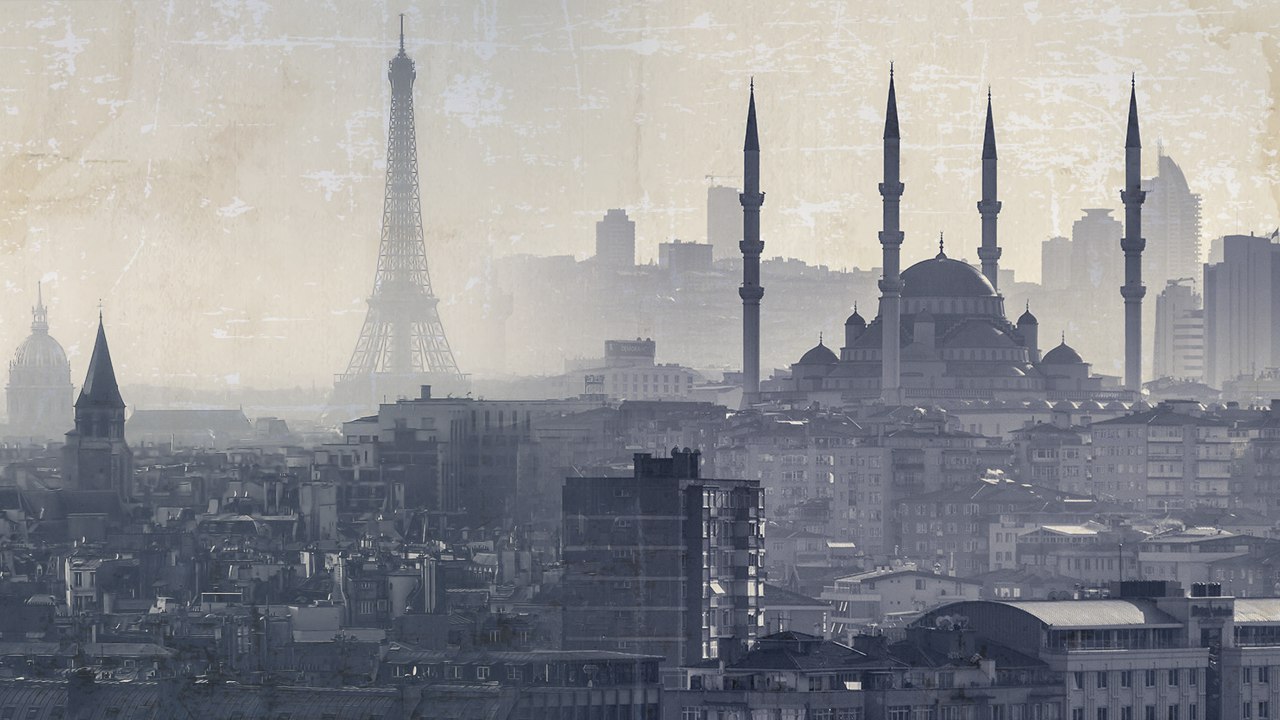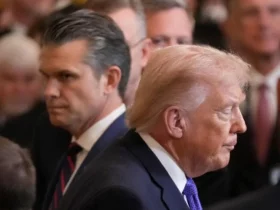Turkish and French troops fought in World War I on different fronts. French warships were among the first comers during the Istanbul invasion with 55 allied warships on November 13, 1918, after the Mudros Ceasefire of October 30, 1918. Although they invaded some parts of Anatolia with Armenian manpower support, they were defeated at the end by Kemalists and signed the Ankara Agreement on October 20, 1921, eventually leaving the occupation front of British and Greek forces. The Kemalist victory over the French forces was one of the main boosters of morale in the Anatolian front. Later, Atatürk adopted a balanced relationship with France which paved the way to the integration of Hatay (Antioch) to the young Republic’s mainland. After Atatürk’s death, President Inonu signed the trilateral pact with France and England in 1939 leaving Ataturk’s traditional neutrality policy for Turkey.
Since the end of World War II, Turkey has generally maintained its relations in favor of France, which holds an important role in the European-Atlantic structures that Turkey entered into after 1945, either through their NATO memberships or their partnerships in the Eurocentric in international organizations. To give an example, Turkey has stood by the imperialist French side during the 1956 Suez Crisis and the Algerian independence referendum in 1958, rather than standing by the oppressed peoples of Egypt and Algeria. Despite all this, French Turkophobia reached an all-time high during the Cyprus and Aegean crises, the separatist Kurdish movements, and during the referendum on the incidents of 1915. France did not hesitate to take a hostile stance with these issues, rather than standing by Turkey as a NATO ally. Generally, they have perceived Turkey with an arrogance that could be simplified by the cliche bon pour l’Orient (a humiliating French phrase “good enough for the Orient”). The French anti-Turkey stance, after Turkey had increases its influence in the Mediterranean, African, Balkan, and the Middle East regions, with the power it had been mustering during the Cold War and emerging as a power at the beginning of the 21st century, has now been upgraded to solid hostility, especially after 2010. Turco-French relations were toppled on June 18, 2020, with the French claim of a fire-control radar (FCR) illumination incident between the Frigate FS Courbet and Turkish warships in the Mediterranean leading to France quitting the NATO operation Sea Guardian in protest.
This well-staged event, in the form of a provocation, was in fact a solidification of accumulated Turkish hostility. France, which had complained to NATO authorities asking for an investigation of the incident, despite that it did not take place under NATO protocols, acted well below its reputation as a nuclear power. By acting like a poorly established and inexperienced state, it had also denounced its hundreds of years-old diplomatic traditions. Turkey has not backed down in this provocation on a vessel escorted by its own Navy and has shown its determination in the most appropriate way without causing an unnecessary escalation. What are the reasons for France’s irrational behavior against Turkey? Can this be explained solely in light of the two countries’ stances in Libya?
French hostility toward Turkey can be broken down into four main categories. The first one is Turkey’s emergence as an effective sea power in the Mediterranean, fueled by its domestic national defense industry and the effective use of its navy in the defense of its Blue Homeland, and in the protection of its maritime interests. The Second one is Turkey’s opposition to the French influence over the Greek Administration of Southern Cyprus, Greece and Egypt in the management of explored and potential natural gas reserves, i.e. in terms of Mediterranean energy geopolitics. The third is growing Turkish military, political, cultural and economic activities in the Maghreb and Levant regions, which has been under the French sphere of influence and interest for the last 400 years. The fourth is the Turkish rivalry with the French defense industry, which is active in Pakistan, especially in terms of their taking contracts for the construction of four MILGEM corvettes and the modernization projects of French-made Agosta-class submarines in recent years.
The new European plague: Why the West became the epicenter of the epidemic
The most important of these clashes are those taking place in Libya and in the Eastern Mediterranean through the Greek Cypriots and Greeks. Despite its permanent membership on the UN Security Council and its NATO membership, plus its dominance in the EU Defense and Security structures as the largest power and only nuclear power ever since Brexit took place, we see today an irrational France with no strategy in these areas. They support Haftar, a warlord and a putschist general, instead of standing by the UN-recognized GNA (Government of National Accord) in Libya. It is an accepted fact that France was the major actor behind the bloodshed and the civil war after the invasion of Libya and the lynching of Ghaddafi, regardless of the UNSC resolution 1973 of 2011.
After all this, France, which has been hegemonizing Africa continuously since the 17th century, still resists the new Mediterranean order being shaped. It cannot tolerate Turkey’s arrival in the region after 100 years with the invitation of the legitimate GNA government, and the military successes it has achieved from 950 miles away. Even the idea of Turkey holding a naval base and an airbase in Libya has led France to extreme and irrational reactions. On the other hand, we are witnessing a France that faithfully recognizes the unlawful and unjust so-called EEZ limitation map by Seville University that has been in effect since the 2000s, and a France that has improved its political support for Greeks and Greek Cypriots to the level of direct military support. By taking risky and dangerous actions such as building naval and air bases while not being a guarantor for the Greek Cypriots and conducting joint exercises against Turkey in the Eastern Mediterranean, France has made it clear that they are dedicated to becoming a major power in the Mediterranean basin, from which the United States will have to withdraw in the near future while ignoring all the mutual partners in the EU.
In this case, the future attitudes of Italy and Spain will be very critical.
Nuclear multipolarity: is Macron’s latest proposal for Europe realistic?
WHAT KIND OF A FUTURE?
Of course, we do not expect the relations between Turkey and France to be like they were during the reign of the Suleiman I and King Francois I in the 16th century. But France must understand and accept the geopolitical interests of Turkey, which have strengthened in the 21st century. Although today’s conditions are much different from the conditions of 1914-1921 period, the time when we fought continuously for seven years, the spirit of the times has not changed very much. There were three industrial powers (Britain, France and Italy) that assaulted Anatolia 100 years ago: They had set the Greek divisions forth on us as a proxy, as a cheap source of blood. It ended up in a complete disaster and a disgrace that would not be forgotten by Greece for many centuries. 100 years later, we are again facing a coalition made up of similar countries that have taken aim on Turkey’s Blue Homeland in the Eastern Mediterranean. The Greek Cypriots and Greeks are back again as their proxies. We see France at the forefront of Turkophobia and the direct actions throughout these regions, from Syria to Cyprus, and from Libya to the frontiers of the Eastern Mediterranean. This situation is unsustainable. From the historical outcomes of our War of Independence, we sincerely recommend France to act friendly towards the Turkish people, and to act accordingly with its international reputation in this new multipolar world order of the 21st century.
Let us end this article with Mustafa Kemal Ataturk’s message in the lead article of the Kurun (succeeded by Vakit) Newspaper by the Journalist Asim Us, during the Hatay Crisis, on January 23, 1937:
“What could possibly be the intentions of the French, when putting this issue at a dead end like this? To be frank, we understand the truth. The truth is that these gentlemen, who have somehow come to the power in France, just as they do not know how to administer the great French Nation, are far away from grasping the rights and the national interests of the new Republic of Turkey, and far from understanding the direct energy which will be demonstrated to defend these interests when necessary.”

















Leave a Reply